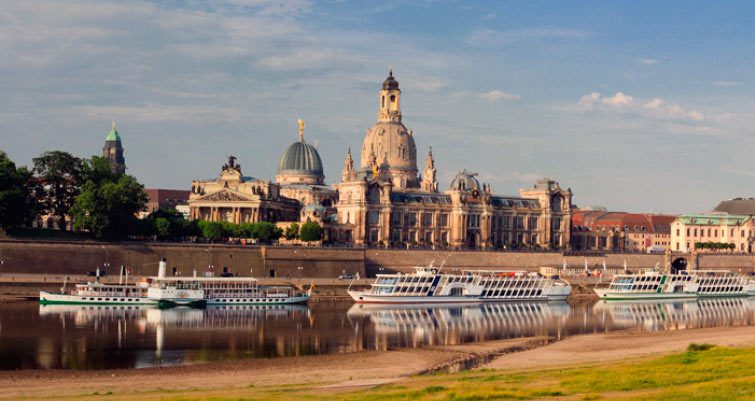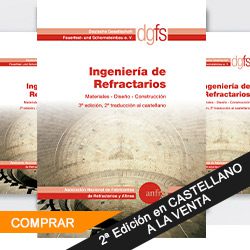
Dear ECerS community,
Since the current pandemic situation does not allow for the reliable planning of a face-to-face conference in Dresden (or any other place in Europe) during 2021, we have had to take the unfortunate decision to shift ECERS XVII to next year, i.e. 2022.
Details about the location and the exact date of ECERS XVII are being discussed right now and we will up-date you as soon as the final plans are known. For now, please be patient and remain safe. We hope to be in touch very soon.
With best regards
Prof. Dr. Alexander Michaelis Prof. Jon Binner
Conference chair ECerS president
About XVII ECerS
Planned every two years, the ECerS conference series focuses on cutting-edge research and product developments in a wide range of ceramic-related areas, and the technical program provides an opportunity for scientists, researchers, engineers and industry leaders from around the world to present and exchange findings on recent advances in ceramic science and technology. The conference will include Plenary lectures, the ECerS Awards Ceremony, the ECerS Fellowships Ceremony and the Student Speech Contest. The conference is accompanied by an industrial exhibition.
The XVII ECerS Conference will be divided in 9 symposia covering a great variety of ceramic science and technology aspects: Innovative processing and synthesis, high-temperature processes and advanced sintering, modeling of ceramics, advanced structural ceramics, composites and refractories, ceramics and glasses for healthcare, ceramics for energy conversion and storage, functional ceramics, silicate ceramics, ceramics in cultural heritage and arts. The symposia will be organized with the help of senior and junior experts from Europe and around the world, providing an inspiring program that will stimulate participation from the global ceramists community. Scientists and specialists from academia, research institutions and industry as well as students are all welcome to attend and share their knowledge and expertise.
Conference committee

Chair
Prof. Dr. Alexander Michaelis
Fraunhofer Institute for Ceramic Technologies and Systems IKTS, Dresden, Germany

Co-chair
Prof. Dr.-Ing. habil. Christos Aneziris
Technische Universität Bergakademie Freiberg, Germany

Co-chair
Prof. Dr.-Ing. Walter Krenkel
University of Bayreuth, Germany

Co-chair
Prof. Dr. Jon Binner
European Ceramic Society, UK
International advisory board
The international advisory board of ECerS 2021 is an independent, international expert committee that advises the organizing committee in scientific issues.
Dresden: Location of the ECerS 2021
Spirited intellectual exchange is a tradition in this internationally known artistic and cultural metropolis. Scientific competence and inventiveness have enabled the city to assert itself again and again as a high-tech location. Since as early as the 18th century, Dresden has been shaped by a fruitful association of business and science. Important inventions and developments resulted from this symbiosis. In 1708 Johann Friedrich Böttger developed the technique for making European porcelain here. Being rooted in this tradition, Dresden nowadays is a center of advanced ceramics in Europe.
Today the Saxon residence presents itself as a modern city, although even today the buildings from the renaissance, baroque and 19th century, like the Zwinger, the Semper Opera House, the Royal Palace or the Frauenkirche, determine the Elbe waterfront and the face of the city.
Venue: Congress Center Dresden (ICD)
The terrace-style International Congress Center Dresden (ICD) benefits from both state of the art design and enviable location. Enjoying a prime spot on the banks of the River Elbe upstream from the neighbouring state parliament, the facility is considered one of Europe’s most modern congress centres. Its various halls and rooms are spread over four levels and can accommodate up to 6,000 visitors. The ICD is situated just on the other side of the Marienbrücke (Mary’s Bridge) – forming an impressive contrast to the adjacent historical baroque buildings of the old town centre.



